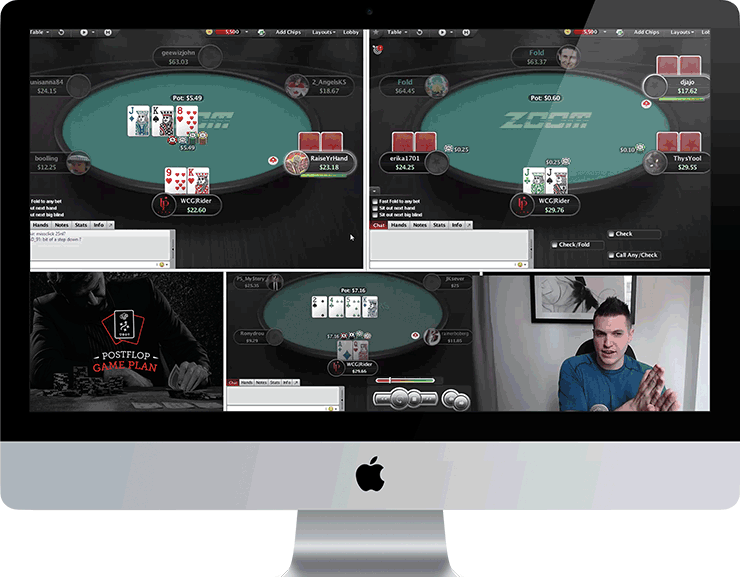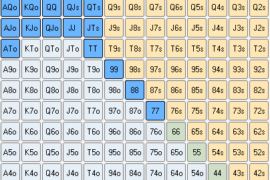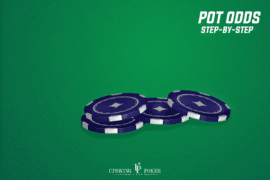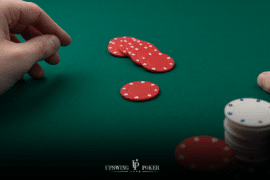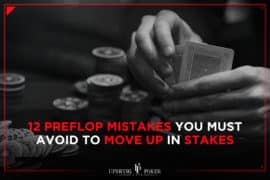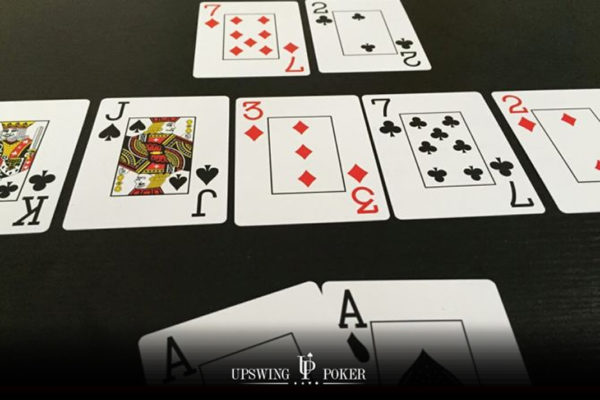
Why Bad Beats are a Poker Player’s Greatest Gift
A smart friend once suggested to me that perhaps poker would be better if every time players were all-in, the dealer split the pot according to their equity, instead of running it out and pushing everything to the winner of the hand.
For instance, if Alice had AA and Bob had KK and both went all-in pre-flop with, say, $100 in the middle, the dealer would automatically award exactly $82 to Alice and $18 to Bob and move on to the next hand (these amounts are known as Sklansky bucks or all-in EV’s).
What an ideal world that would be, right? No more bad beats!
Question: Do you think that’s a good idea?
A) Yes, it totally eliminates the all-in EV variance!
B) It’s ok, but hard to implement.
C) Are you kidding me? Bad beats are the greatest gift of poker!
I may have spoiled the answer already in the title, but what makes “bad beats” so important?
Bad beats are not so “bad”
Alice is usually the best player at her table.
Hence, it is not surprising that she is more often the recipient of bad beats than the other way around, as, when all the money goes in, Alice is usually the favorite.
When she loses an all-in hand, it is often because she was unlucky and her opponent caught an unlikely card on a later street. That is the exact definition of a bad beat!
Yet Alice would be the first to say that bad beats are incredibly important for the poker eco-system. Without them, weaker players would be far less inclined to battle superior players, eventually killing the action and putting players like Alice out of business. The luck factor is what draws so many people to the game and what makes it so fascinating.
Games like poker – where luck is so fundamentally involved – are among the very few where one can learn the rules and beat the world champion in their first hand. Of course, beating the same champion over 10, 100 or 1000 hands becomes exponentially less likely, to the point that it eventually becomes a practical impossibility.
Still, there is some non-negligible chance in the short run. This is a notable absence in games of pure skill (e.g. chess) where the best player almost always wins, especially if the skill differential is substantial.
Start Making Profitable Plays with Confidence
When you get the $7 Postflop Game Plan, you’ll learn how to make quick poker decisions that win…
…and your opponents won’t know what hit them.
Every hand you lose is a “bad” beat
The name “bad beat” is very misleading. In the vast majority of pre-river all-ins, every player has some equity in the pot. This means that every beat is technically “bad” in the sense that losing the entire pot means losing more than one should, based on one’s equity.
Conversely, winning with less than full equity means winning more than one deserves, effectively nullifying the meaning of the word “bad” in a beat. In other words, losing with a chance is unlucky while winning with the best hand is lucky!
For example, say that Alice has 2♠ 2♣ on a K♦ Q♥ 2♦ flop and, after a few bets, raises and re-raises, she gets all the money in against Bob’s A♥ K♥ (top pair, top kicker).
The pot is now roughly $2000. A quick Equilab equity calculation shows that Alice is almost a 93% favorite to win the pot versus Bob’s 7%.

From a technical standpoint, this means that Alice’s hand is worth 93% of $2000 or $1860, while Bob’s hand is worth the remaining 7% or $140.
Notice that neither player deserves the full $2000 pot. Yet one of the players will get exactly that! By the same token, neither player should walk away with nothing, but that is exactly what will happen!
Staying on the technical side for a moment, we see that if Alice wins, she makes $140 more than she deserves. This means that if she does win, she will be “lucky,” because she will get more money than she is supposed to. Similarly, Bob will be unlucky if he loses, by exactly that amount. If we switch the results and Alice loses, she will be “unlucky” to the extent of $1860, while Bob will be equally lucky.
To be fair, the luck factor in the second case is about 13.3 times bigger than the first (the ratio of 1860 over 140) which unsurprisingly is exactly 93 to 7. In other words, Alice will win 13 times more frequently than Bob, but Bob will win 13 times the amount of “extra” money to compensate. It does not get more “fair” than that and, yet, the result of every pre-river all-in is always unfair.
This means that no individual beat is ever fair, whether as a favorite or as an underdog.
In a nutshell, every time Alice suffers a “bad” beat, she is paying back for all those times she won “too much” as the favorite. This helps Alice keeping things in perspective. She understands that most of her winning sessions often involve her being lucky (to not be unlucky), thus justifying the mathematical inevitability of her losing ones.
Takeaways
In a nutshell, every time Alice suffers a “bad” beat, she is paying back for all those times she won “too much” as the favorite.
This helps Alice keep things in perspective. She understands that most of her winning sessions often involve her being lucky (to not be unlucky), thus justifying the mathematical inevitability of her losing sessions.
In other words, bad beats are not only essential for the game (and the reason why winning players still get action at the poker table) but also an illusion of sorts. The illusory part is their negatively connoted nature: they are still beats and they may hurt like ones, but there is nothing particularly unfair about them.
Think of it this way: If the long run is what takes care of our win-rate and makes sure that we are eventually profitable against weaker players, how do we expect it to not take care of the accumulated surplus we receive over time from all the pots we win? They both depend on the same principle:
In the long run, we all get our fair share at the poker table…
Boost Your Poker Skills Without Investing Much Time or Money
With such a low price tag, the $7 Postflop Game Plan is a no-brainer if you want to improve your fundamentals and build a bigger bankroll.

